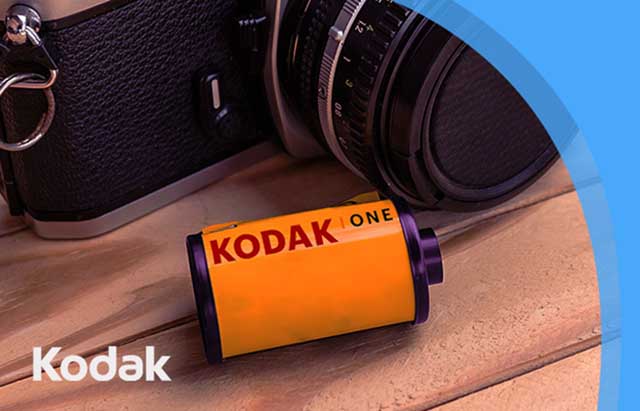Bitcoinist spoke with Darren Marble, CEO of CrowdfundX, a fintech marketing firm that uses artificial intelligence and digital marketing to help its clients acquire retail investors and shareholders at scale. His company was responsible for designing, producing, and marketing historic Reg A+ IPOs to NASDAQ, NYSE, and OTC Markets Group and also Security Token Offers (STOs), such as KodakCoin.
I predict that NASDAQ, the NYSE, or OTC Markets Group will launch a token market. If they don’t, they may become obsolete.
– Darren Marble
Bitcoinist: First, what does your company, CrowdfundX, do?
Darren Marble: CrowdfundX (CfX) is a FinTech marketing firm. We help companies raise capital online using Reg D 506(c) or Reg A+. Some of our clients include KodakCoin; Drake, who is a co-founder of Virginia Black Whiskey; and Fatburger. Prior to entering the blockchain space, CfX marketed historic Reg A+ IPOs to NASDAQ, the NYSE, and OTC Markets Group. Our Reg A+ clients have raised north of $100 million USD in the past two and a half years. We operate at the high end of the market and generally prefer to work with established brands.

Bitcoinist: What are the steps ICOs must take to become SEC-approved and avoid getting shut down by regulators?
Darren Marble: Let me start by noting that I personally don’t like the term ICO, and I encourage industry participants—at least in the US—to use the term Security Token Offer, or “STO” instead.
I think ICO is a dirty word—it has a negative connotation in the US market. ICOs are associated with the sale of unregistered securities and outright fraud in some cases. An STO is a regulated offering, whereby the issuer is selling programmable equity—backed by some tangible asset—to the investor.
Now that I’m done ranting . . . issuers have several options when it comes to running a compliant deal. Reg D 506(c) has no cap on the raise, allows accredited investors to invest, and gives you the ability to generally solicit or market your deal. It’s fast, easy, and efficient. The downside is that you’re limited to accredited investors who must prove they are accredited, and there is a one-year lockup on tokens.
Reg A+ has a $50 million cap on the raise, allows anyone over 18 to invest—regardless of income or net worth—and also gives you the ability to market your deal. Reg A+ issuers must submit two years of audited financials (if available) and file a Form 1-A with the SEC, which can be time-consuming and costly. The advantage is that anyone can invest, and there is no lockup on tokens.
Firms like tZERO, CoinList, and Templum are developing compliant, secondary markets for the trading of security tokens, and several should be live later this year. These platforms—which will be regulated and SEC-approved—will encourage institutional investors to participate in the market.
Bitcoinist: Would it be easier to simply ban US citizens from participating in an ICO like many are doing? And is this a viable strategy for ICOs for the time being?
Darren Marble: For those running an ICO outside the US, sure, you can ban US citizens, but I don’t see this as a viable long-term strategy. For companies based in the US, you should register your deal with the SEC, or use an applicable securities exemption like Reg D or Reg A+.
Let me be clear: regulation protects investors—it’s not a bad thing. At the end of the day, investors are the fuel for the entire industry. If investors continue to get burned in scam deals, or deals with limited or no disclosure, they will simply stop investing. If that happens, the truly innovative ICOs will struggle for funding.
That’s why I’m pro-regulation; I believe investors should be protected, because without investors generating positive returns, there is no industry.
Bitcoinist: Is Facebook, Twitter, Google, etc. banning questionable cryptocurrency/ICO advertising ultimately a good move for Bitcoin and the crypto industry as a whole?
Darren Marble: I am working on developing a solution to this very problem—a permission-based marketplace that connects issuers to qualified investors. CfX has an audience network of 500,000 self-directed individual investors, and we will be licensing our IP to a new company I am starting to tackle this issue. (Connect with me on LinkedIn to learn more.)
While the crypto advertising ban will surely root out some of the scam deals, it has also created a gap in the market. Retail investors—both accredited and unaccredited—are still highly interested in crypto, and they want to be able to invest in quality deals. At best, the ban has forced issuers to be creative in how they market to retail investors, but at worst, some issuers will only market to crypto funds, leaving retail investors entirely out of the equation.
Bitcoinist: What do you look for when recommending and marketing ICOs?
Darren Marble: I always start with the team. The team has to be credible, savvy, and experienced for CfX to even review the deal. If it’s a younger team with less experience, that’s fine, provided the team is well-connected and respected inside the crypto community.
Secondly, I prefer to work on deals that have existing technology or some unfair advantage in the market. For instance, KodakCoin—with their partnership with Kodak—has global brand equity.
Lastly, I look for deals that have a solid marketing budget. If a company tells me they want to raise $25 million, but they’re just starting up and only have a $25,000 marketing budget, I’m out. In the ICO/STO space, deal marketing is the most critical aspect of any successful raise (assuming a strong deal), and the marketing budget should reflect that reality.
Bitcoinist: What kind of role did you play with KodakCoin’s ICO?
Darren Marble: The Chairman of KodakCoin has been following CfX for years and knew of our track record and market leadership in the Reg A+ industry. He contacted me last December and asked me to bid the deal. Because KodakCoin is a branded deal, and because they were running one of the first regulated STOs in the US, we were eager to partner with them.
CfX is marketing KodakCoin to both retail and strategic investors. On the retail side, KodakCoin now has more than 80,000 leads from retail investors who indicated interest on their website; we are now beginning to run these investors through the accredited verification process.
On the strategic side, CfX has marketed KodakCoin to more than 250 blockchain and crypto funds—mostly small hedge funds with $5 to $500 million in assets under management in the US. Our role has been to been to make warm introductions between these funds and KodakCoin’s management team and let KodakCoin sell securities. CfX now has tight relationships with the largest, most credible funds in the industry.

Bitcoinist: What is your response to the criticism of KodakCoin, which includes everything from jumping on the ICO bandwagon to being an outright scam?
Darren Marble: KodakCoin has generated tremendous PR, some good, and some bad, which is inevitable in a deal that has been so widely publicized. But for starters, people need to know that Kodak is a $220 million market cap company trading on the NYSE—the most reputable national securities exchange in the US—and their CEO, Jeff Clarke, has been intimately involved in the deal.
Some in the industry criticized KodakCoin when they delayed the launch of their deal, but the delay was intentional—KodakCoin was actively communicating with the SEC to ensure they were in full compliance with US federal securities laws.
KodakCoin takes compliance and disclosure seriously, and I think they did the right thing by slowing down the deal to prioritize investor protections above capital raising. Now the deal is moving forward, and it’s exceeding expectations on all fronts.
Bitcoinist: How much did KodakCoin raise in its pre-sale?
Darren Marble: All communications are being managed through the KodakCoin website, and interested parties can sign up at KodakCoin.com to learn about the deal’s progress.
Bitcoinist: What is your opinion on ICOs having pre-sales for insiders? Doesn’t this undermine the entire concept of democratizing the IPO process?
Darren Marble: The decision to run a pre-sale is made by the issuer. Some issuers have run pre-sales while others have not. In many cases, it’s savvy for issuers to run a pre-sale, as it allows them to get critical early funding into their deal and signals positive momentum to retail investors.
I believe that Reg A+ is going to become an increasingly popular vehicle for STO issuers in the US as it allows anyone to invest, which aligns nicely with the crypto philosophy of democratizing VP and IPO processes.

Bitcoinist: What projects are you currently most excited about? And has the ICO hype reached its peak or is this only the beginning?
Darren Marble: Two weeks ago, I met with the CEO of a multi-billion dollar gaming company in Silicon Valley that is planning an STO. They have hundreds of millions of users, hundreds of employees, and proven, best-in-industry technology. This is what I refer to as an “enterprise offering,” and I think these deals will become more common in the months and years ahead. Investors won’t generate a 100x return in a deal like this, but at least their risk is highly mitigated relative to your average ICO.
Bitcoinist: Finally, what does your crystal ball show for the ICO industry in the months ahead?
Darren Marble: I predict that NASDAQ, the NYSE, or OTC Markets Group will launch a token market. If they don’t, they may become obsolete. Public companies will slowly “upgrade” their shares to tokens as tokens will function more efficiently than shares. The future is bright—and it will be regulated.
[Disclosure: CrowdfundX was compensated $150,000 USD to market KodakCoin’s securities and $305,000 USD to market Virginia Black Whiskey’s securities. For more information on KodakCoin, go here; for more information on Virginia Black Whiskey, go here.]
Will the ICO industry mature and become regulated? Share your thoughts below!
Images courtesy of Shutterstock, Crowndfundx
The post ‘I Think ICO is a Dirty Word’ – Lessons in Compliance from KodakCoin (Interview) appeared first on Bitcoinist.com.
